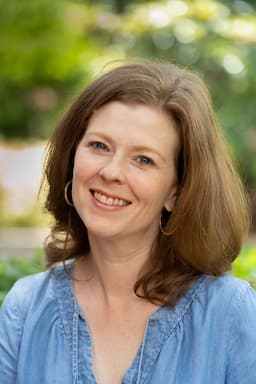About Time: L’Engle, Lewis, and the Question of Predestination — The Spacious Place
Bear with me. I’m about to get nerdy.
The concept of time has fascinated me since reading Madeleine L’Engle’s A Wrinkle In Time at the age of ten. It got me thinking about black holes and time travel, relativity and alternate realities. L’Engle, a devoted Christian, engaged with these concepts in her writing in a way that pointed her reader to deeper, timeless truths. As a ten-year-old, most of this went over my head, but I can’t help but think some seeds were planted.
When I became at Christian at 19, my fascination with time turned theological. Questions about God’s foreknowledge as it relates to predestination and free will tied me up in knots. (Seriously, there was a time when I actually lost sleep over it.) Most of the answers I found failed to satisfy. Many of the theologians I read came down firmly on one side or the other, emphasizing either predestination or free will. But if you can make a scriptural argument for either, might not both be true in some way? My tiny human brain felt like it was going to explode.
Ultimately, it was C.S. Lewis who brought me some peace with his willingness to embrace paradox.
In The Great Divorce, Lewis tackles this conundrum in a fascinating way:
Every attempt to see the shape of eternity except through the lens of Time destroys your knowledge of Freedom. Witness the doctrine of Predestination which shows (truly enough) that eternal reality is not waiting for a future in which to be real; but at the price of removing Freedom which is the deeper truth of the two.
You see, eternal reality, along with God himself, exists outside of time. But we, as time-bound humans, don’t experience that reality in our day-to-day existence. Who God is, and our relationship to him, is a present and unchanging reality. But within time, we have the freedom to choose. We can reject God or choose to enter into his eternal reality. The choice is real and its ramifications are experienced in a way that is not simply linear. In other words, both predestination and freedom exist simultaneously. In his remarkable Space Trilogy, Lewis goes so far as to suggest they are identical, depending upon our viewpoint.
My existential angst was eased by this perspective of predestination and free will as a paradox that could perhaps be viewed as two sides of the same coin. I no longer felt that I needed to fully understand in order to believe that God is omniscient and also blesses us with freedom—that we are both chosen and must make a choice. In his spiritual autobiography, Surprised by Joy, Lewis describes in great detail the moment he knew he was being presented with a choice.
The odd thing was that before God closed in on me, I was in fact offered what now appears a moment of wholly free choice…The choice appeared to be momentous but it was also strangely unemotional. I was moved by no desires or fears. In a sense I was not moved by anything. I chose to open, to unbuckle, to loosen the rein. I say, “I chose,” yet it did not really seem possible to do the opposite. On the other hand, I was aware of no motives. You could ague that I was not a free agent, but I am more inclined to think that this came nearer to being a perfectly free act than most that I have ever done.
I love the way a collision between free will and predestination seems to occur in this moment— as if Lewis had a choice that was, in a sense, already decided.
So you may be asking, “What’s the point?” I’ve boiled it down to this. Time is a gift. Perhaps the greatest gift we can be given.
Without the constraints of time, we cannot know freedom, and God wants his children to be free. After all, Paul tells us in Galatians 5:1, It is for freedom that Christ has set us free. As C.S. Lewis indicates, when we consider both freedom and predestination, freedom “is the deeper truth of the two.”
Time is the space—I like to think of it as a pocket or wrinkle in eternity—given to humans in which they may choose to accept God’s love. Jesus’ sacrifice, the singular act through which we enter into salvation, is given within the framework of time. Hebrews 9:28 tells us, Christ was sacrificed once to take away the sins of many; and he will appear a second time, not to bear sin, but to bring salvation to those who are waiting for him. God himself entered into time to show us what love looks like, and this gift works forwards and backwards.
Here’s another little gem from Lewis’ Great Divorce:
Son, he said, ye cannot in your present state understand eternity...That is what mortals misunderstand. They say of some temporal suffering, "No future bliss can make up for it," not knowing that Heaven, once attained, will work backwards and turn even that agony into a glory.
Isn’t that an amazing thought? God’s redemption is so complete that all of our earthly suffering is consumed by his timeless, incalculable love. In God’s kingdom, nothing that is contrary to love can remain. For this reason, he gives us a window of opportunity, known as time, in which to be transformed into love.
God does not coerce us because coercion cannot come from a place of love and cannot possibly yield a harvest of love. Love must be free. Learning to be loved and to love in return is the primary purpose of our time-bound life. It prepares us for eternity. Your time on earth is a gift like no other. How will you choose to use it?






